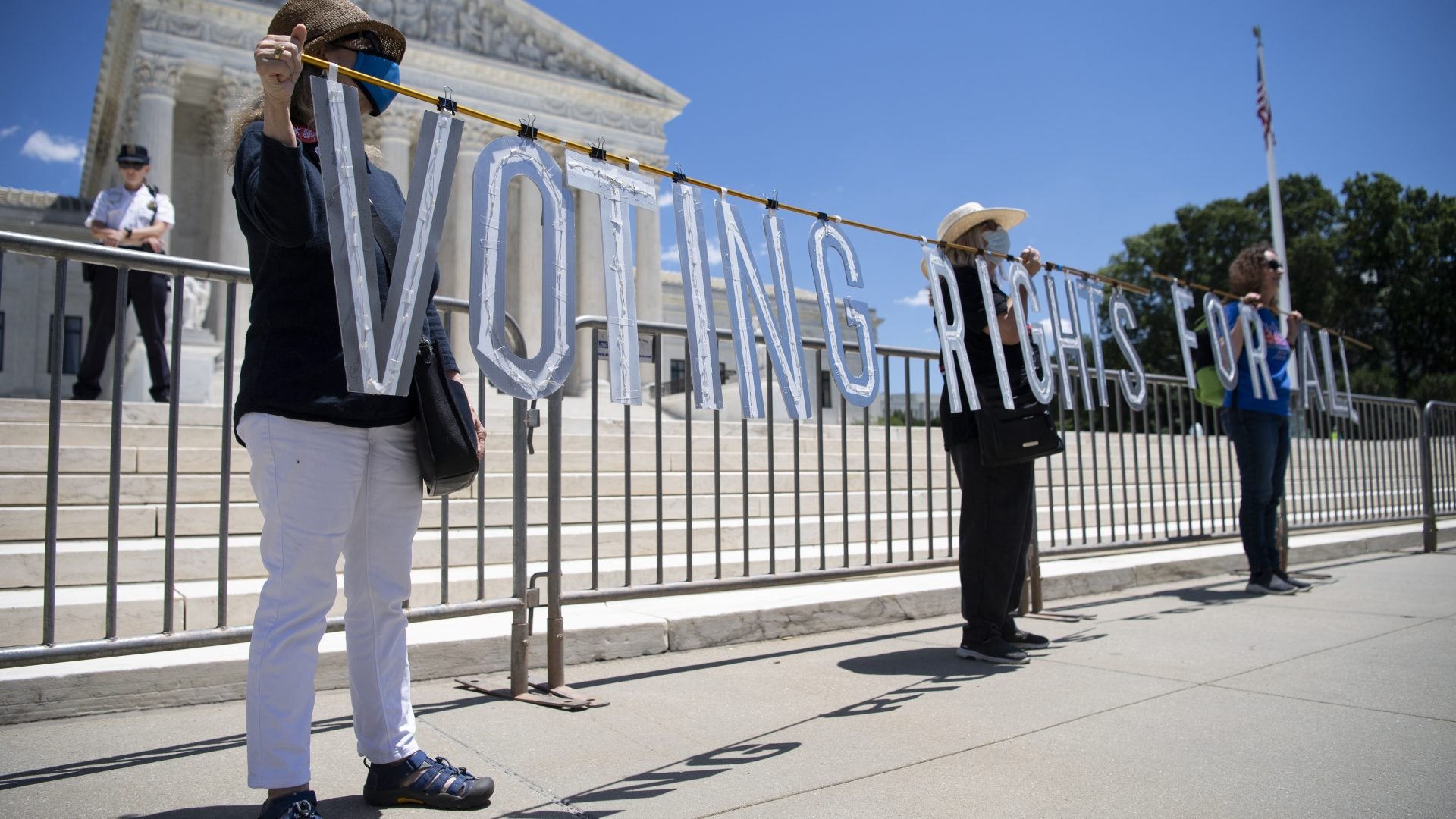
Imagine being registered to vote, but when you show up to the polls, you are turned away because you were removed from the voter roll, despite being fully eligible to vote in that election. In recent years, there has been an uptick in wrongful voter removals across the country, which is yet another example of threats to ballot access.
“Protecting Voter Registration: An Assessment of Voter Purge Policies in Ten States,” a new report from Dēmos, the public policy think tank with a strong commitment to racial justice, attempts to explain how this practice can “create unnecessary burdens on the right to vote.”
Arizona, California, Georgia, Indiana, Louisiana, Michigan, North Carolina, Ohio, Texas and Wisconsin were selected as the ten states used as the basis for this analysis because their policies were considered to be the most representative of the gamut of voter policies across the country. Also of note, many of their state legislatures are considering or have recently passed laws around voter purging.
During last year’s legislative session, 43 bills were introduced by state lawmakers that would “allow or require problematic voter purges, and in 2023, as of the writing of this report, states are considering at least 28 additional bills.”
Yes, some voters do need to be removed due to valid reasons such as address changes and death; however, Dēmos found that many states used “Flawed voter purge practices–such as removals for inactivity or based on inaccurate identification of felony status or citizenship status—[which] often disproportionately target voters of color, naturalized citizens, and other communities, and can prevent many eligible persons from exercising their right to vote.”
We saw this play out in Georgia, just ahead of the midterm elections, when the “state’s ‘exact match’ law called into question the registration status of 50,000 voters over minor inconsistencies on their registration forms” in 2018. The competitive race against now-Governor Brian Kemp and Stacey Abrams was literally decided by less than a 1.5 percent margin. Unfortunately, we’ll never know if there might have been a different outcome in this election if this practice was more regulated.
Indeed, voter purging is still occurring, and remains largely unchecked. According to the report, “Between the close of registration for the 2020 general election and the close of registration for the 2022 general election, states reported removing 19,260,000 records from their voter registration rolls. This was equal to 8.5% of the total number of voters who were registered in the United States as of the close of registration for the 2022 general election.”
As the Guardian found in 2020 based on a study of Wisconsin, “voters in zip codes that were predominantly black or heavily populated by students were nearly twice as likely to be flagged for removal. These populations are also more likely to vote Democrat.”
The Dēmos study “underscores the importance of paying attention to the impact of list maintenance practices on traditionally disenfranchised groups like Black and brown voters,” Dēmos’ Director of Communications, Anoa Changa told ESSENCE. “Left unchecked, even the most mundane and routine procedures in our system of elections can have negative consequences on voters who often face numerous barriers to casting their ballot,” she stated.
Taifa Smith Butler, President of Dēmos said, “Protecting voting rights and fair elections includes equitable election administration and voter roll maintenance.”
“We are facing an unprecedented assault on voting rights in this country, and purges that erroneously target eligible voters for removal are part of the problem. The Supreme Court has spent the last decade systematically weakening the protections in the Voting Rights Act. Extremist state legislatures are passing laws that disproportionately target Black and brown voters,” continued Butler.
“Voter suppression efforts are a direct threat to the basic rights of Black and brown people, families and communities, as well as young and rural voters,” Butler added, “This analysis makes it clear that we must pass comprehensive, federal voting rights legislation.”